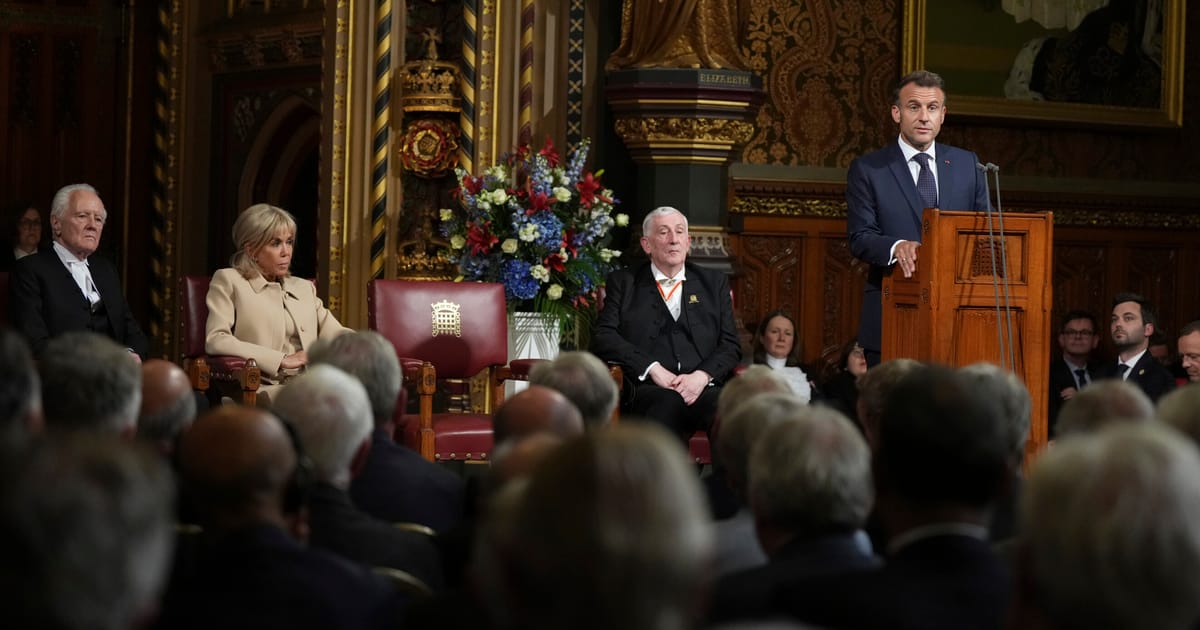

In a period of profound challenges and opportunities, Europe’s leaders are engaging in meaningful dialogues that hold the potential to shape the continent’s future. Recent developments spotlight the interconnected issues that European nations and their partners are navigating with hope and determination.
French President Emmanuel Macron recently addressed the Houses of Parliament, emphasizing the pivotal role the United Kingdom and France play in ensuring Europe’s security. Macron’s speech highlighted the unique responsibility these nations bear in fostering stability and cooperation amidst a rapidly changing global landscape. He urged for a collective European effort to bolster security, reflecting a commitment to shared values and mutual assistance among European allies.
In tandem with these diplomatic efforts, tensions between the European Union and Libya took center stage, following a diplomatic impasse. The EU’s Migration Commissioner, Magnus Brunner, found himself at the heart of a controversy as Libyan officials declared him “persona non grata,” alongside several ministers from EU countries. This development underscores the complexities of migration policies and the pressing need for dialogue to address the multi-faceted challenges they present. The situation serves as a reminder of the delicate balancing act required to manage international relationships while respecting national sovereignty.
Meanwhile, Danish Prime Minister Mette Frederiksen addressed the European Parliament, heralding a new chapter as Denmark embarked on its rotating presidency of the Council of the EU. Her words of trust reflected her faith in Europe’s ability to overcome significant challenges. Frederiksen’s speech called attention to a litany of pressing concerns, from Russia’s actions in Ukraine to issues of migration, the Middle East, economic trade, and global terrorism. Through her optimistic lens, she envisioned a future where Europe not only addresses these challenges but emerges more secure, environmentally sustainable, and competitive.
In the sphere of international peace efforts, hopes for a swift ceasefire in Gaza faced setbacks as Qatari officials acknowledged the complexity of ongoing negotiations between Israel and Hamas. The indirect talks, facilitated by the United States and aimed at establishing a 60-day ceasefire, represent a step towards potentially ending the enduring conflict. While the path to peace may require patience and further diplomatic engagement, the commitment from involved parties to continue discussions signifies hope amidst adversity.
On the trade front, former U.S. President Donald Trump expressed optimism regarding the European Union’s disposition towards the United States in ongoing trade discussions. With the possibility of a resolution on tariffs within reach, these talks underline the enduring economic ties and mutual interests shared across the Atlantic. The emphasis on cordial relations reinforces the importance of collaborative economic strategies in fostering growth and prosperity.
Amid these unfolding events, President Macron also advocated for reducing Europe’s dependency on external powers such as the US and China. His appeal underscores an ongoing discourse about Europe’s strategic autonomy in an interconnected world. As Europe seeks to define its role on the global stage, balancing self-reliance with cooperative engagement remains a continuous dialogue among its leaders.
Through it all, the spirit of collaboration and resilience is evident across the European continent. Leaders are reflecting on past lessons as they forge paths toward a peaceful, sustainable, and prosperous future. This collective journey highlights the power of unity and shared vision in overcoming challenges, reaffirming Europe’s enduring commitment to the well-being of its citizens and the broader global community.
Source: {link}
